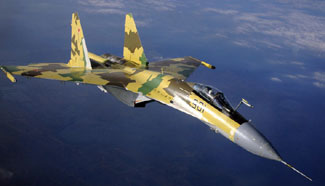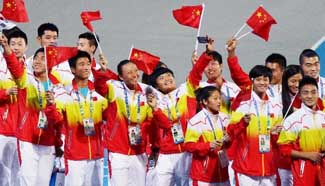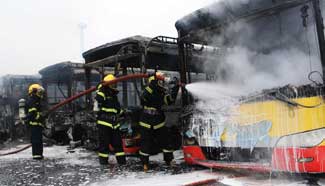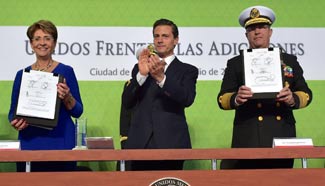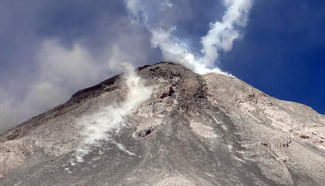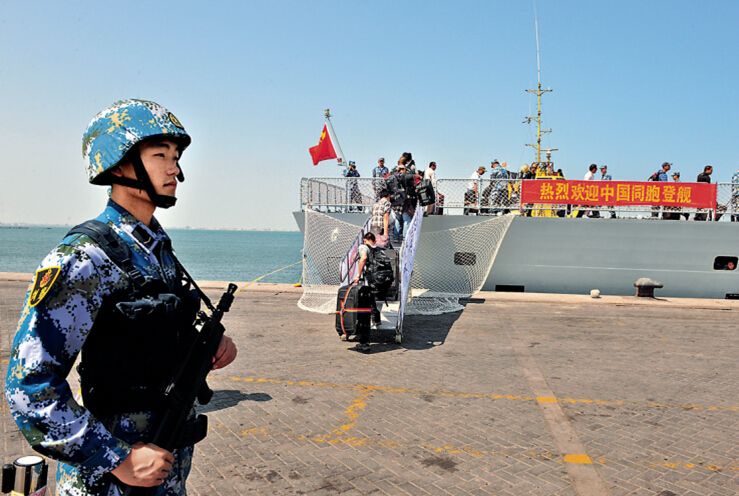
In line with the instructions of Chinese President Xi Jinping and the Central Military Commission, the 19th escort task force of the navy – comprising the frigates Linyi, Weifang and Weishan – evacuated Chinese nationals from Yemen from March 29 to April 6. A total of 897 people – 618 Chinese nationals and 279 people from 15 other countries – were evacuated. It was the first time a Chinese naval fleet had anchored in a foreign port to carry out an evacuation, and the first time the Chinese government had ordered the evacuation of foreigners from a high-risk region.
Emergency response
Tian Qi, Chinese Ambassador to Yemen, said the evacuation had to be done quickly. As Saudi Arabia and other countries had launched air attacks against Yemen Houthi rebels on March 26, the embassy had only five days to gather Chinese nationals from a dozen regions. It was tremendously difficult to ensure a quick, safe evacuation.
The Chinese Embassy to Yemen quickly made a plan. Since all international airports had been destroyed, aircraft could not land or take off. They had to ask the Chinese navy, which was conducting escort duties in the Gulf of Aden. The embassy instructed Chinese nationals to gather in Yemen’s two biggest cities: Sana, the capital, and the southern city of Aden.
“The conflict was fierce. We had great difficulty implementing our evacuation plan. We originally planned to start the evacuation on March 30. But in the early morning of March 29, both sides unexpectedly announced a ceasefire. So we quickly decided to advance the evacuation of nationals already gathered in Aden. After we left, the city was ravaged by fierce fighting again,” said Tian Qi. “During the evacuation, we received support from Yemen, Djibouti, Ethiopia, Bahrain and Saudi Arabia.” The successful evacuation had demonstrated the sincere friendship of these countries.
“From March 26, the day we made the plan, to March 30, the day we had most people aboard the ships, I slept only two hours each day,” said Tian Qi. “I answered 100 to 200 calls each day. Seeing the Chinese nationals evacuated on March 30, many foreigners came to us asking if we could take them too. They envied Chinese nationals who could get help from their motherland in an emergency.”
Real friends always help each other in times of need. China demonstrated its good will in the evacuation. As Mushahid Hussain Sayed, Chairman of Pakistan’s Senate Standing Committee on Defense and Defense Production and president of the Pakistan-China Friendship Association, noted, Pakistan and its people proudly found that China could play a new role in humanitarian relief. The actions of the Chinese navy were a sign of stability and peace in Asia. It was also a good example of Asian countries helping one another and cementing solidarity.
Naval Action
Late on the night of March 26, the Chinese navy instructed the three frigates to suspend their escort mission and proceed to the waters off Yemen at full speed.
Quilts, food and medicines were prepared for the evacuees. Dining, laundry and luggage storage areas were designated, while instant food and drinking water were prepared. Helicopter and special operation squads drew up contingency plans.
The Gulf of Aden is narrow and tortuous, and many shipwrecks and other obstacles have occurred in the Port of Aden. Moreover, the harbor was close to the downtown area, which was under fire. Near the harbor there were many high-rises. It was here that the United States Navy guided-missile destroyer USS Cole was attacked by terrorists in a speedboat in 2000. The security concerns were enormous.
Hodeidah Port was new to Chinese navy fleets. Its approaches are shallow and narrow – only 100 meters wide – and the port is challenging as it is difficult to turn. The frigate Weifang had to maneuver fast at the port.
The fleet spent a whole night studying anchorage and navigation plans with as much detail and precision as possible.
To ensure safe boarding of the evacuees, the frigate Linyi activated combat stations, having fully-armed special combat soldiers and sailors guarding the security cordon while helicopters watched from the air. Within 39 minutes, the first batch of 124 people boarded the frigate. The second batch of 400 people took less than two hours to board – an average of 10 seconds per person.
The Chinese medical squad in Taiz had witnessed the horror of war since early March. The Houthi rebels deployed heavy forces in Taiz Province to attack the city of Aden some 100 kilometers away. The squad had planned to retreat to Sana on March 26, but the air raid in the small hours of that day forced them to rethink their plan.
Zhang Xinfeng, head of the medical squad, recalled that the explosions were heard all night. “It was too risky to go to Sana from Taiz. So we contacted the embassy and decided to stay in Taiz that night and went to the nearby Hodeidah Port the next day,” said Zhang.
In appreciation of the medical squad’s support, the local hospital authority arranged for locals to escort them to Hodeidah.
In the early morning of March 30, the embassy mobilized more than 40 vehicles from the construction site of the National Library. The library was a China-aid project. In the meantime, the frigate Weifang took on more than 400 Chinese nationals from off Hodeidah Port.
Hodeidah is only 230 kilometers from Sana. Escorted by Yemeni army tanks, the Chinese motorcade quickly passed each checkpoint and took five hours to get to Sana along a precipitous and dangerous road.
On their way, local people waved in salute. The highway linking Sana to Hodeidah is the first highway in Yemen, and the first large infrastructure project built with Chinese aid. It was a tribute to the friendship of China and Yemen.






